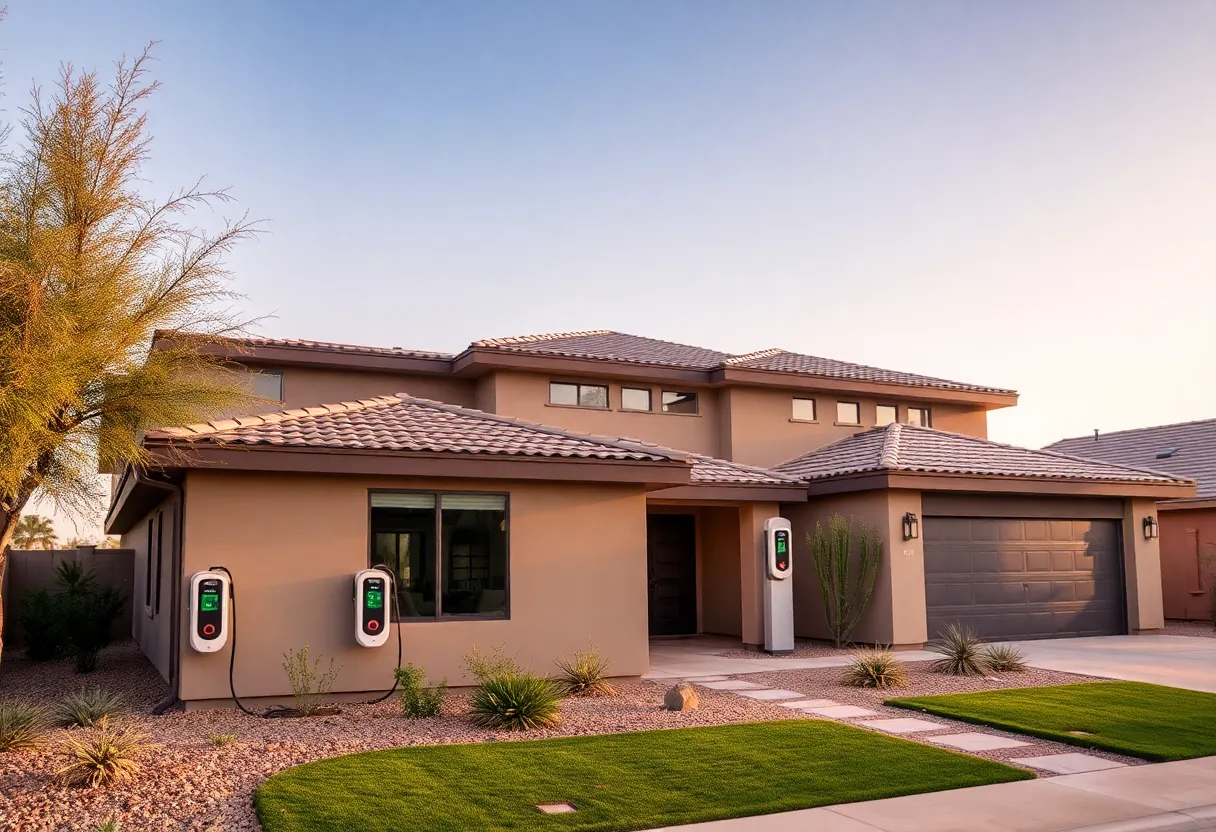How to Navigate Phoenix’s Unique Building Regulations for Your Home Construction Project
Overview of Phoenix’s Building Construction Codes
Phoenix’s building regulations are carefully crafted to promote safety, sustainability, and accessibility in residential construction. Recent adoption of the 2024 Phoenix Building Construction Code (PBCC) reflects the city’s commitment to integrating the latest standards from the 2024 International Codes®, including the International Building Code (IBC), International Residential Code (IRC), and International Energy Conservation Code (IECC). This comprehensive update aims to modernize building practices and enhance quality standards for new and renovated homes within the city limits. The effective date of this code is August 1, 2025, making it essential for builders, contractors, and homeowners to familiarize themselves with these new requirements.
Key Updates in the 2024 Phoenix Building Construction Code
Electric Vehicle (EV) Charging Infrastructure
One of the most significant updates involves the mandatory inclusion of provisions for future electric vehicle charging stations. New residential structures, regardless of size, now need to pre-wire or allocate space for EV chargers. This forward-thinking measure supports the increasing adoption of electric vehicles and aims to future-proof homes. Builders are encouraged to incorporate dedicated circuits, conduit spaces, and electrical panel provisions to simplify installation down the line, ensuring seamless integration of EV charging solutions.
Water Conservation Measures
The updated code emphasizes the importance of water efficiency. Home designs must now include water-saving plumbing fixtures such as low-flow toilets, aerated faucets, and high-efficiency showerheads. These requirements serve a dual purpose: reducing overall water consumption and aligning with larger sustainability goals. Implementing these fixtures not only complies with the new standards but also helps homeowners lower utility bills and minimize environmental impact.
Inclusive Home Design
Legal standards for accessible and inclusive design are now more robust. The code introduces detailed guidelines aimed at improving usability for people with disabilities and supporting aging in place. Requirements specify accessible entrances, wider hallways, barrier-free bathrooms, and household fixtures designed for ease of use. These standards foster a more inclusive living environment and are increasingly becoming a mandatory feature in new residential developments.
Streamlined Permitting Process
To reduce delays and bureaucratic hurdles, the city has simplified the permit process for certain minor construction projects. Permits for structures such as storage shipping containers and residential fence replacements are now no longer required. This change accelerates project timelines and encourages homeowners to undertake improvements without the typical administrative burden. However, larger projects still require comprehensive review and approval, especially those involving structural or electrical work.
Steps to Navigate Phoenix’s Building Regulations for Your Home Construction Project
1. Determine Permit Requirements
Assess whether your project falls under permitABLE categories. Minor renovations or cosmetic improvements may qualify for over-the-counter permits, while extensive modifications, additions, or structural changes will require detailed plans and formal approval. It is advisable to consult the Phoenix Planning & Development Department early to clarify scope and requirements.
2. Prepare Necessary Documentation
Gather all relevant documents, including:
- Completed permit application form
- Site plan illustrating property boundaries, existing structures, and proposed changes
- Floor plans indicating interior modifications or additions
- Electrical, plumbing, and mechanical drawings if applicable
- Structural plans for any load-bearing or foundation work
Ensure that all documentation adheres to the 2024 PBCC standards. Proper preparation expedites review and approval processes.
3. Submit Plans for Review
Plans should be submitted to the Phoenix Planning & Development Department for comprehensive review. The department evaluates compliance with current codes, including new features introduced in 2024. It may request revisions or clarifications to ensure standards are met before issuing approvals.
4. Obtain Necessary Approvals
Respond promptly to any requests for modifications. Once your plans are approved, secure all necessary permits. These permits authorize you to begin construction while maintaining adherence to safety and building standards.
5. Schedule Inspections
Throughout construction, coordinate with city inspectors to schedule inspections at critical stages. Inspections verify ongoing compliance, especially for electrical, plumbing, and structural components. Passing these inspections is mandatory before proceeding to subsequent phases.
Additional Considerations
Accessory Dwelling Units (ADUs)
- In historic districts, ADUs must conform to design and preservation standards to protect neighborhood aesthetics.
- In single-family residential zones, only one ADU per lot is permitted.
- Size restrictions are based on overall lot size and zoning regulations.
Proper planning and adherence to these rules prevent legal or compliance issues when constructing or adding an ADU.
Stay Informed on Code Updates
Building regulations evolve periodically. Regularly review the Phoenix Planning & Development Department‘s website for the latest updates and amendments. Staying current ensures projects remain compliant and benefit from new initiatives or standards.
Frequently Asked Questions (FAQ)
What is the 2024 Phoenix Building Construction Code?
The 2024 Phoenix Building Construction Code (PBCC) is the city’s latest set of regulations, effective August 1, 2025. It incorporates updates from the 2024 International Codes®, focusing on safety, energy efficiency, and accessibility standards for residential construction.
What are key updates in the 2024 PBCC?
Major updates include mandatory EV charging infrastructure, water conservation fixtures, enhanced accessibility standards, and a streamlined permit process for certain minor projects like fencing and container additions.
How do I determine if my construction project requires a permit?
Review the scope of your project. Minor improvements may qualify for over-the-counter permits, while larger renovations or additions require detailed plans and approval from the City’s planning department. Consulting early helps clarify requirements.
What are the regulations for Accessory Dwelling Units (ADUs) in Phoenix?
In historic districts, ADUs must comply with preservation standards. Only one ADU per lot is permitted in single-family zones, with size limits depending on lot size. Ensure your plans meet these regulations to avoid complications.
How can I stay informed about Phoenix’s building code updates?
Regularly check the Phoenix Planning & Development Department’s website for latest code amendments and updates to ensure compliance and incorporate new standards into your project.
Key Features of Phoenix’s Building Regulations
| Feature | Description |
|---|---|
| Electric Vehicle Charging Infrastructure | Provision for future EV charging stations through pre-wiring and dedicated circuits in new homes. |
| Water Conservation Measures | Mandates for water-efficient fixtures like low-flow toilets, aerated faucets, and high-efficiency showers. |
| Inclusive Home Design | Standards to improve accessibility, including wider doorways, barrier-free bathrooms, and accessible entries. |
| Streamlined Permitting Process | Elimination of permits for certain minor projects to speed up approval timelines and reduce administrative burden. |
| Accessory Dwelling Units (ADUs) | Specific regulations on design, size, and placement, especially within historic districts and single-family zones. |
Author: STAFF HERE PHOENIX WRITER
The PHOENIX STAFF WRITER represents the experienced team at HEREPhoenix.com, your go-to source for actionable local news and information in Phoenix, Maricopa County, and beyond. Specializing in "news you can use," we cover essential topics like product reviews for personal and business needs, local business directories, politics, real estate trends, neighborhood insights, and state news affecting the area—with deep expertise drawn from years of dedicated reporting and strong community input, including local press releases and business updates. We deliver top reporting on high-value events such as the Waste Management Phoenix Open, Cactus League Spring Training, and Arizona State Fair. Our coverage extends to key organizations like the Greater Phoenix Chamber of Commerce and Visit Phoenix, plus leading businesses in technology and healthcare that power the local economy such as Intel and Banner Health. As part of the broader HERE network, including HERETucson.com, we provide comprehensive, credible insights into Arizona's dynamic landscape.





